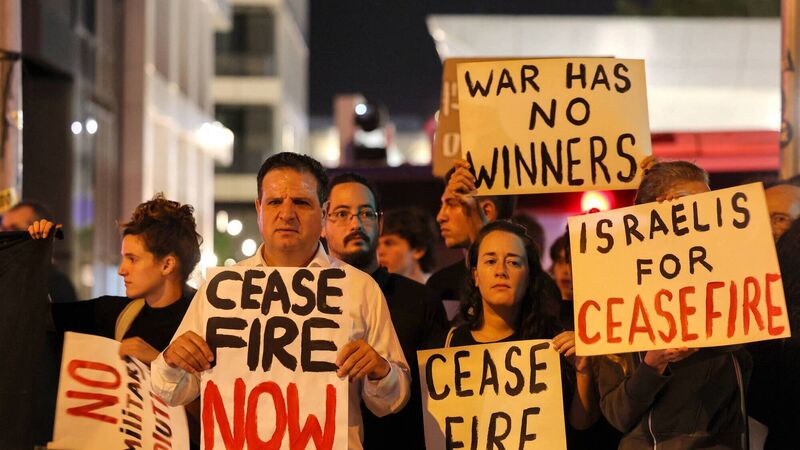Israeli parliament continues to assault its own citizens' civil rights

Israeli Parliament members Ayman Odeh, left, and Israeli left-wing activists hold placards during a demonstration against the war with Gaza in Tel Aviv on November 4, 2023. Picture: Ahmad Gharabli/AFP via Getty Images
There has been no shortage of profoundly disturbing, objectionable, and arguably genocidal quotes from senior Israeli politicians over the past 20 months of war on Gaza.
Bezalel Smotrich, the minister of finance: “Nobody will let us cause two million civilians to die of hunger, even though it might be justified and moral.”













